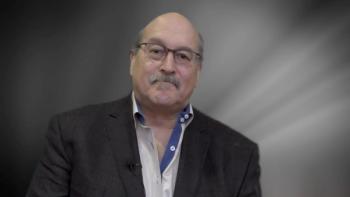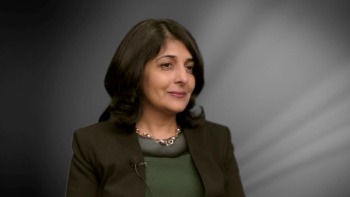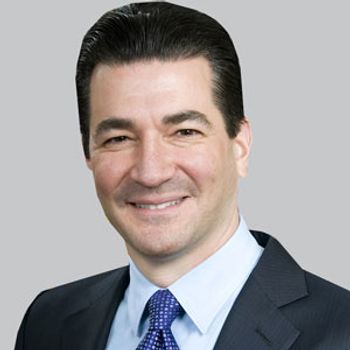
MS and Demyelinating Disorders
Latest News

Latest Videos

CME Content
More News

The Postdoctoral Scholar at the University of California San Francisco spoke about a longitudinal study that evaluated the utility of spinal cord atrophy measured from brain scans as a surrogate marker for impending conversion to secondary progressive MS.

The staff neurologist at Premier Neurology, a partner in care with the National MS Society, spoke about how to best overcome the challenges presented by the symptomatic management of MS.

The staff neurologist at the Mellen Center shared the findings from a poster the group presented from the cohort of patients in which they evaluated quantitative MRI.

Understanding risk perception and risk tolerance can lead to greater satisfaction with treatment choices and adherence for patients with MS.

Neurology News Network for the week of March 16, 2019.

The staff neurologist at Cleveland Clinic's Mellen Center spoke about the real-world observational study of the primary-progressive MS treatment.

The neurologist with Premier Neurology spoke about the challenges and state of symptomatic care in multiple sclerosis.

Ned Sharpless, MD, the director of the National Cancer Institute, has been named to the position of acting FDA Commissioner. The announcement was made just a week after the current commissioner, Scott Gottlieb, MD, announced his plans to resign in early April.

The staff neurologist at Cleveland Clinic's Mellen Center spoke about re-examining patient-reported outcomes to better understand the quality of life of patients and how it can affect clinical care.

The 2-year safety and efficacy extension of the CHANGE-MS trial ultimately showed encouraging dose-dependent effects with the 18-mg/kg dose on confirmed 12-week EDSS and 25-foot timed walk scores.

The Andrew & Erna Viterbi Professor of Electrical Engineering and Computer Science at MIT spoke about a new way of continuous monitoring for patients with MS and neurodegenerative disorders, discovering changes in quality of life and new biomarkers.

The director of the probabilistic vision group and medical imaging lab at McGill University spoke about how these learning methods can be used to predict future lesion activity and disability progression in MS.

The chief of the Multiple Sclerosis Division at the Perelman School of Medicine discussed the importance of institutions recognizing the value a comprehensive MS clinic can provide not only to the patients but the institution itself.

The director of the Corinne Goldsmith Dickinson Center for MS at Mount Sinai School of Medicine spoke about the major issues in MS right now: being able to individually prognosticate, moving toward developing better therapies for a progressive disease, and repairing the damage to the nervous system.

The staff neurologist at the Mellen Center for MS at Cleveland Clinic spoke about the potential for the central vein sign to help address issues of misdiagnosis in multiple sclerosis

The vice president of US Medical Affairs in Neurology and Immunology at EMD Serono spoke to the next steps for the oral agent and its potential to get approved by the FDA in 2019.

The director of the multiple sclerosis research unit at Ottawa Hospital spoke about the importance of long-term efficacy studies.

Neurology News Network for the week of March 9, 2019.

The staff neurologist at Cleveland Clinic's Mellen Center spoke about the importance of a comprehensive approach to managing patients with multiple sclerosis.

The chief of the Multiple Sclerosis Division at the University of Pennsylvania’s Perelman School of Medicine spoke about the need for more team-based care for patients with MS.

The vice president of US Medical Affairs in Neurology & Immunology at EMD Serono discussed the importance of having long-term and age-matched data on the use of the investigational oral agent in MS.

The professor of neurology at Harvard Medical School shared her methods for diagnosing pediatric MS and about the importance of managing the disease in a larger sense.

The 23rd FDA commissioner’s resignation is effective in about a month; his successor has not yet been named.

The director of the probabilistic vision group and medical imaging lab at McGill University spoke about machine learning’s potential to help physicians predict MS disease progression, treatment effectiveness, and more.

The director of the Partners Multiple Sclerosis Center at Brigham and Women's Hospital spoke about the future of multiple sclerosis.


















